Israeli police clash with protesters calling for early elections; Netanyahu won’t agree to hostage deal until Hamas backs down
Israel also vowed to press ahead with a campaign in the southernmost reaches of Gaza.
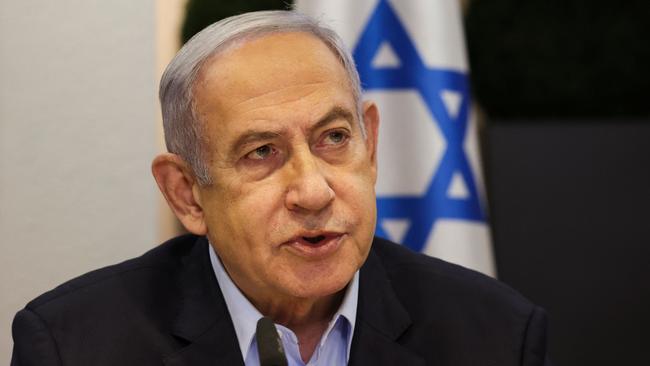
Israeli Prime Minister Benjamin Netanyahu said he won’t agree on a deal to free the remaining hostages held in Gaza until Hamas backs down from its demands, and that Israel will press ahead with a campaign to defeat the militant group’s remaining battalions in the southernmost reaches of the strip.
Speaking on CBS’s Face the Nation, Netanyahu said Israel’s military would have to invade Rafah, on Gaza’s southern border with Egypt, regardless of any deal to free some of the 130 hostages who were seized from Israel during the Hamas-led attack on Oct. 7.
Israel’s total victory over the group was in reach, he said, and once the operation there begins, the most intense phase of the war “would be weeks away from completion.”
Israel has come under intense pressure internationally to halt its plans to move into Rafah because of the large number of civilians who have sought shelter there under already difficult humanitarian conditions. More than a million displaced people are now there, and Biden administration officials have said they don’t want the Israeli military to begin operations until there is a clear plan to ensure the safety of civilians.
Israeli PM @netanyahu doesn't say whether a hostage release deal with Hamas is close, but tells @margbrennan "we're all working on it," adding that Hamas started with "crazy demands."
— Face The Nation (@FaceTheNation) February 25, 2024
"If they come down to a reasonable situation, then yes, we'll have a hostage deal. I hope so." pic.twitter.com/Q4Wmlnq1MS
Israeli, American, Qatari and Egyptian officials met in Paris on Saturday to create a new framework for a deal to release hostages, or their bodies, and establish a temporary cease-fire.
Netanyahu said that a hostage deal was potentially in reach but that Hamas hasn’t yet formally responded to the new framework hammered out on Saturday.
He said Hamas’s original demands were “delusional.” They included, among other things, the release of thousands of Palestinian prisoners, many of which Hamas would choose, and a permanent cease-fire.
“If they come down to a reasonable situation, then yes we can have a hostage deal,” Netanyahu said on CBS.
U.S. national security adviser Jake Sullivan said an outline of a hostage deal between Israel and Hamas was agreed to in Paris, but that Egypt and Qatar are still holding talks with Hamas to bring them closer to the new framework.
Israeli Prime Minister @netanyahu tells @margbrennan that "total victory is within reach" once Israeli Defense Forces begin its military operation against Hamas in southern Gaza.
— Face The Nation (@FaceTheNation) February 25, 2024
"The intense phase of the fighting is weeks away from completion, not months, weeks away." pic.twitter.com/tWNHSG9xCq
“We hope that in the coming days we can drive to a point where there is actually a firm and final agreement on this issue but we will have to wait and see,” Sullivan said on CNN.
Mediators in the Paris meeting said Hamas was showing flexibility on how long the pause in fighting should last, the number of Palestinian prisoners to be released in the first phase of the agreement and the gradual withdrawal of Israeli troops from the Gaza Strip.
Hamas was also willing to drop its demand for a permanent cease-fire and instead accept negotiations at a later stage to reach that goal. Hamas, however, remains insistent that the Israeli military withdraw from parts of the strip to allow displaced Palestinians to return to their homes, Egyptian officials said. The group is still demanding the release of those serving long jail sentences in violence-linked cases, while a further release of Israeli hostages during the cease-fire would be dependent on progress in talks toward an end to the war, the officials said.
Mediators between the sides hope to reach a deal that would help avert an Israeli ground operation in Rafah, and Israel has agreed to send a team to Qatar in the coming days to work on the technical parts of a deal.
Israeli officials have set a deadline of the start of the Islamic holy month of Ramadan, around March 10, for Hamas to release hostages the group seized during the Oct. 7 attacks that killed some 1,200 people, according to Israeli authorities.
More than 29,000 Palestinians have been killed since Israel began its offensive, according to Palestinian health authorities, the majority of them women and children. The numbers don’t distinguish between civilians and combatants.
Netanyahu said that senior Israeli commanders will later Sunday present him with a plan to both evacuate civilians from Rafah to areas north of the town, which Israel has already largely cleared of Hamas’s forces, and then to dismantle Hamas’s battalions there.
Israel’s military has destroyed 18 of 24 Hamas battalions, with four remaining in Rafah, Israeli officials have said.
Despite indications that Egypt is preparing to contain Palestinian refugees who may break into its side of the border, Netanyahu said Israel currently has no plan to push anyone in Rafah into Egypt.
While most Israelis back Netanyahu’s push to completely dismantle Hamas, according to recent polls, he is under increasing pressure to cut a deal to free the hostages and call for early elections.
Israeli police clashed Saturday night with protesters demanding new elections and the release of the remaining hostages seized on Oct. 7, in a return to the kind of turmoil that roiled the country before the current war in Gaza began and adding further pressure on Netanyahu.
Police used horse-mounted officers with batons and water cannons to disperse protesters they said were blocking a main street, though they said most of the thousands of protesters acted peacefully. At least 21 demonstrators were arrested or taken in for questioning, the police said, while protest organizers said all those detained were freed Sunday morning.
Some protesters held signs demanding “elections now.” Others held up photos of some of hostages still being held in the Gaza Strip, demanding that Netanyahu’s government strike a deal for their release.
Hofshi B’Artzenu, an umbrella organization for different protest groups that want to topple what they see as an illiberal and far-right extremist government in power, said the police had used “disproportionate” force against protesters.
“The voice of Israeli citizens demanding to replace the most failed government in the history of Israel will not be silenced. It will only grow,” the group, whose name means Free in Our Homeland in Hebrew, wrote in a statement.
The government, a fragile coalition built around Netanyahu’s alliance with far-right and ultra-Orthodox parties, still has around three years in power before it must call an election. Political analysts are split on whether the government can withstand the pressure to call for an early vote, but Netanyahu has said that talk of elections while Israel is still fighting Hamas harms the war effort, and that he hopes the current government will complete its full term.
Before October’s Hamas attack, Israel had been consumed by a long period of domestic turmoil. For months on end, hundreds of thousands of protesters took to the streets across the country to protest Netanyahu’s plan to overhaul the country’s judicial system, fearing it would undermine the country’s democratic character by diluting one of the few checks on government power.
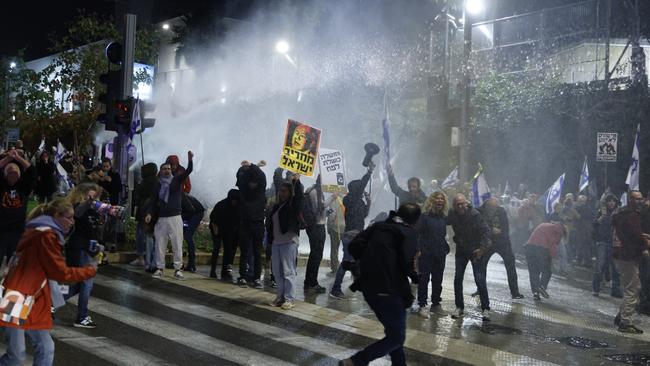
Most of the organizers from the earlier wave of protests have held back from joining the more recent ones. Protest organizers and political analysts say the presence of Benny Gantz and his centrist party in the national emergency government has persuaded them to stay away.
Meanwhile, the Israeli military on Sunday said that last week it finished an operation lasting more than a week inside Khan Younis’s Nasser Hospital, the second largest in Gaza, looking for hostages and militants.
The military said it arrested more than 200 suspected militants, including some who took part in Hamas’s Oct. 7 attack, hiding out in the complex and also found a large number of weapons stored there.
But Israeli forces didn’t find any hostages or their bodies, despite saying its forces had entered the hospital after receiving indications captives were held there. The military said it found inside the hospital boxes of sealed medicines with the names of Israeli hostages on them.
Israel has transferred packages of medicines required for the hostages to Hamas, but it isn’t clear if the militant group ever distributed the medicine to the hostages.
On Sunday, Gaza’s health ministry said a few hospitals in the northern part of the enclave are suffering from a lack of fuel. It warned that medicines could go bad without power to fuel refrigerators, and that intensive-care patients are at risk due to a lack of generators, ambulances and medicine.
In recent weeks, aid shipments into Gaza have plummeted, as Palestinian police who guarded shipments have refused to work and looters have blocked shipments, reducing deliveries, especially in the north.
The Wall Street Journal

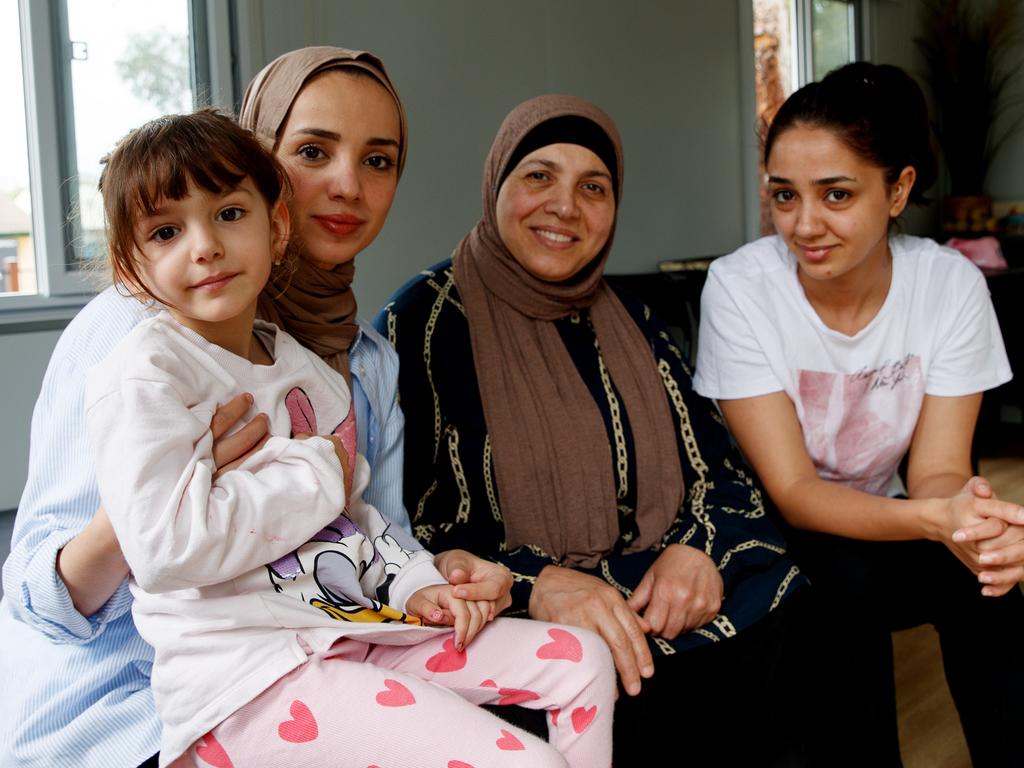

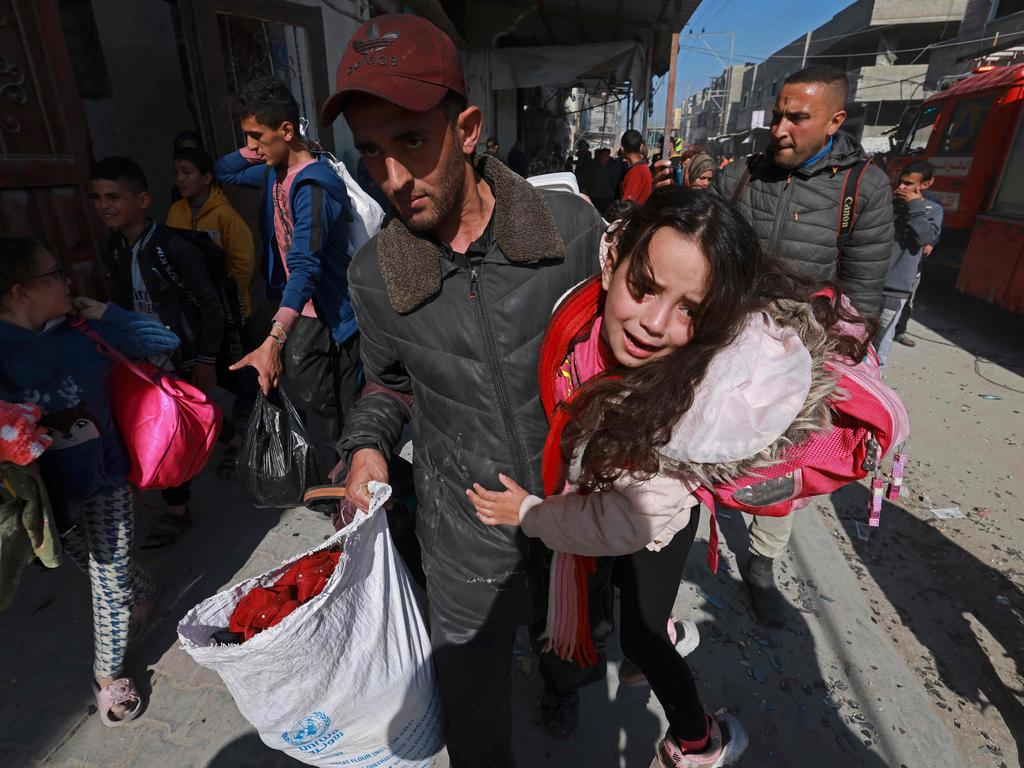
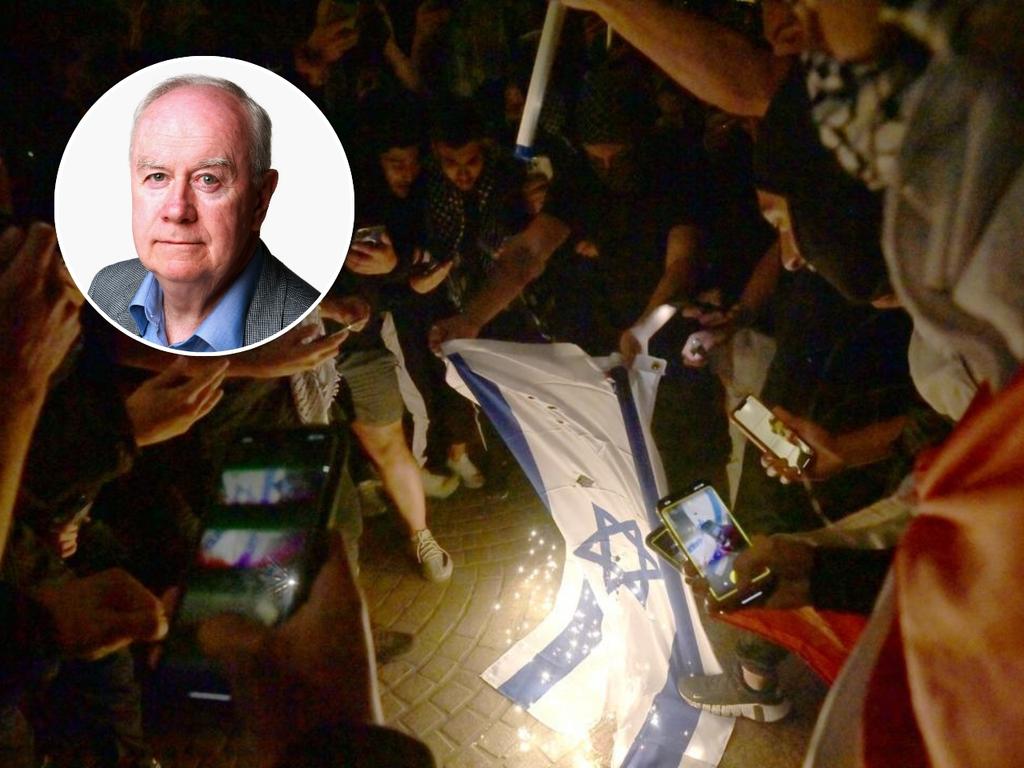


To join the conversation, please log in. Don't have an account? Register
Join the conversation, you are commenting as Logout